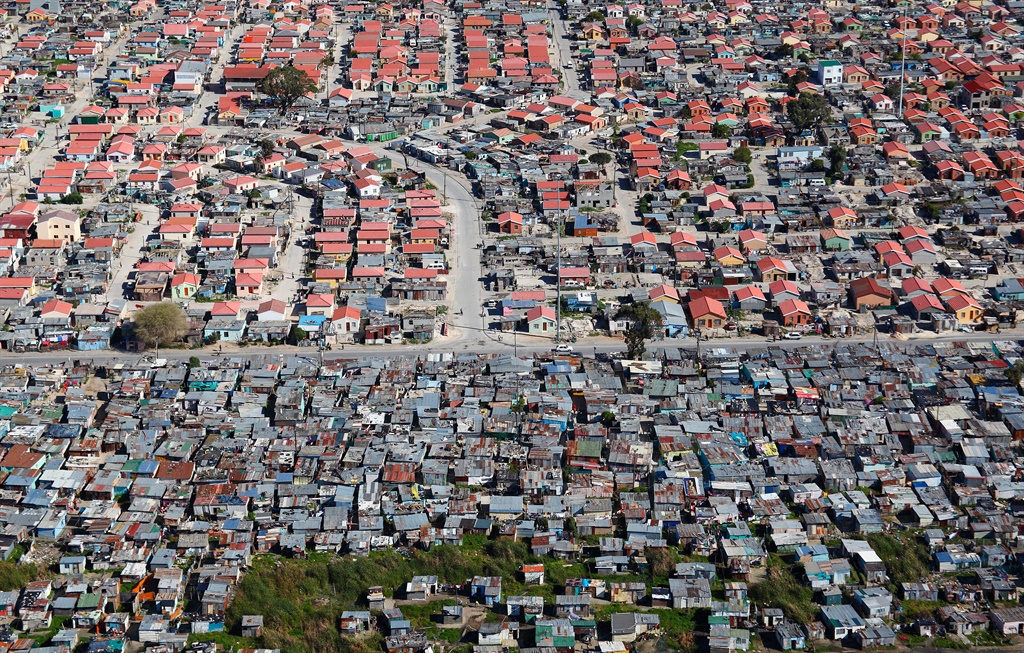
South Africa is one of the most unequal countries on earth.
Statistics like the Gini coefficient only confirm what any tourist sees on arrival: Large disparities in living standards between those in swanky suburbs of Sandton or Stellenbosch and those living precariously on the outskirts. Add to that the poverty of a third of South Africans still residing in former homelands, far away from most tourist eyes.
How to narrow this gap has been at the centre of debate for the last 25 years. But there has been little progress. While the nature of income inequality has changed – inequality between black and white has declined while inequality within each group has increased – the overall level of inequality has remained largely constant.
Economists have typically identified two things that should help: economic growth and redistribution. But SA is stuck. A decade of paltry economic growth has precluded the first of these options. And redistribution has its limits too. We often forget that because of our progressive tax system and well-targeted social grants system, we have one of the most redistributive budgets in the world. Yet, with a budget teetering on the brink of insolvency, there is little scope to further take from the rich to give to the poor.
There are, of course, other options. Historian Walter Scheidel argues in his excellent book, The Great Leveller, that only three things have ever substantially reduced inequality: wars, revolutions and pandemics. “Just as with mass mobilisation wars and transformative revolutions,” he writes, “equalisation was accompanied by great human misery and devastation, and the same applies to the most catastrophic epidemics.” He notes that “this is, without any doubt, an exceedingly bleak conclusion”.
Could Covid-19 kill SA’s persistently high inequality, presenting a silver lining around the darkest of clouds? A new NBER paper written by five economists suggests it’s unlikely. They use the 1950s Chinese Communist Revolution and the Cultural Revolution from 1966 to 1967 to test whether these two major revolutions that completely eradicated inequality within Chinese society have created fairer Chinese income distribution today.
Mao Zedong’s policies to eradicate inequality are great case studies. Both revolutions – a Land Reform policy where millions of acres of land was transferred from landlords to peasants, and a Cultural Revolution that equalised access to education – were not only explicitly aimed at reducing inequality, but were also associated with massive human loss as a result of violence and famine, one of the prerequisites for large-scale reductions in inequality. An estimated 40m people died in the Great Chinese Famine of the late 1950s alone.
As the authors point out, the revolutions were “remarkably successful in the short run – essentially eradicating inequality in land ownership and education attainment”. They then do something interesting: They compare pre-Land Reform land inequality to real estate inequality in 2000. More specifically, they compare the family names of those that were part of the elite before the revolutions with those that have the most property today. There's no reason to expect a correlation, of course; the two revolutions wiped out any trace of inequality. Those that prosper in 2000 should bear no resemblance to those that prospered before 1950.
And yet, there is remarkable persistence. The grandchildren of the pre-revolution elites earn 17% more than their counterparts with non-elite grandparents. This result is especially striking given that there are no differences. This result is especially striking given that there are no differences at the parental level: The children of the pre-revolution elites and non-elites all inherited the same land and the same education. Yet their children somehow reflect the income distribution of their grandparents.
This persistence of inequality across two generations in China is very similar to measures calculated for the US or Canada. The authors conclude: “Thus, the two major revolutions with the explicit goals of eliminating class privileges and removing inequality did not manage to increase social mobility above what is observed in these two major capitalist economies, with no revolutions.” The massive human suffering to equalise the income distribution was for nothing.
What could explain this? The authors emphasise the cultural transmission of values. “The grandchildren of the former landlords are more likely to express pro-market and individualistic values, such as approving of competition as an economic driving force, and willing to exert more effort at work and valuing education as an input into success.” Attitudes toward the free market, it seems, are pivotal in creating prosperity.
SA’s deep and structural inequality is, of course, not the result of a lack of work effort by the poor or mere beliefs in collectivist values. The inequalities of colonial interactions – land dispossession, limits on education and forced removals –still underpin much of what we see around us today.
Yet, we should also be cautious in asserting that our high Gini will simply vanish once we implement redistributive policies, either through the fiscus or, more directly through policies like land expropriation without compensation. As Scheidel notes, “land reform that was not associated with violence one way or another hasrarely, if ever, been a potent means of combating inequalities of income and wealth”.
And, as the authors of the China paper point out, even if it is associated with radical transformation through violence, inequality inevitably returns because building wealth requires much more than simply access to land and education: It requires values and beliefs – pro-market attitudes – that economists are only now beginning to investigate.
A global pandemic is equally unlikely to defeat inequality. The best we can hope for is that Covid-19 will, firstly, help us find innovative ways to offer those at the bottom access to urban land and quality education and, secondly, cultivate and nurture the pro-market attitudes to make productive use of those resources. It’s a tall order, but our only hope.
This article originally appeared in the 4 June edition of finweek. Buy and download the magazine here or subscribe to our newsletter here.




 Publications
Publications
 Partners
Partners











